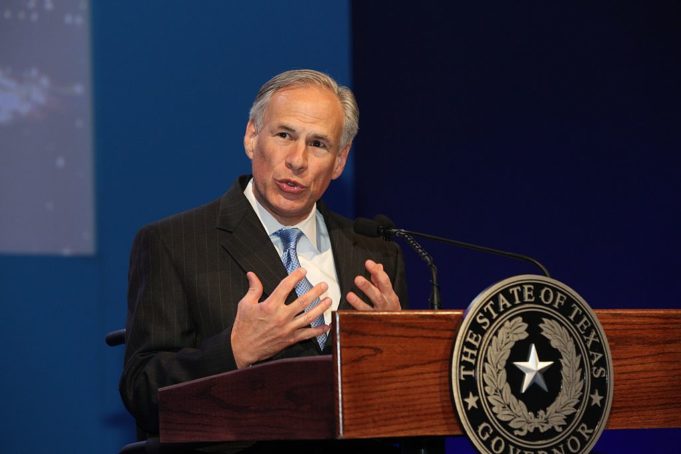Gov. Greg Abbott’s 30-day special session, which he called after Texas Republicans failed to pass legislation that cracks down on state voting laws in May, is on track to be a partisan circus. In addition to restrictive new elections legislation, Abbott has also revived an assortment of other red-meat entrails that the GOP failed to get through in the regular session, which featured a slew of conservative victories, from a near-ban on abortions to permitless gun carry.
Rattled by threats posed by primary challengers, Tea Party darlings Allen West (Texas GOP chair) and former state senator Don Huffines, Abbott filled his special session agenda with fodder for the conservative culture wars, including additional funding for border security theatrics, protections for conservatives against purported censorship by social media platforms, restricting trans kids from competing in school sports, more restrictions on abortion, an overhaul of state bail law to undermine local reforms, and a purported ban on Critical Race Theory (CRT) that will further micromanage how history and race can be taught in Texas schools. Abbott also included the restoration of funding for the legislative branch, which he defunded with a budget veto last month ostensibly as a threat to ensure that Democratic legislators behave during the special session.
The regular session, which ended on Memorial Day, ended with more drama and finger-pointing than usual. Despite strong majorities in both chambers, GOP leaders botched their push to enact Senate Bill 7, a sweeping elections crackdown package. After a secretive, last-minute rewrite of the bill added a slate of controversial provisions, including limiting Sunday early voting hours and allowing judges to overturn election results if voter fraud is discovered, Republicans rushed to pass the overhauled bill without debate. The rush prompted a dramatic walkout by House Democrats, breaking quorum and killing the bill.
In the aftermath, House and Senate Republicans blamed each other for the demise of the marquee bill, but neither took credit for the last-minute additions. Yet Abbott saved his wrath for the Democrats, immediately pledging to call a special session to pass elections legislation and revive his bail overhaul bill, a casualty of the walkout that would have given the governor more control of the bail system and then vetoing the section of the state budget that funds the legislative branch.
The autocratic ploy — which is being challenged in court — would effectively defund the Legislature beginning Sept. 1, a move purportedly meant to force Democratic lawmakers to acquiesce in the special session. As Abbott later acknowledged, legislators’ pay — which is constitutionally mandated — would be untouched. The victims of his veto would actually be the 2,100 legislative staffers and employees at the Legislature’s nonpartisan agencies, including the Legislative Council, which drafts bills and will be responsible for drawing the state’s political maps when lawmakers undertake redistricting in yet another special session this fall.
Despite Abbott’s threat, Democrats have pledged that all tactics and strategies remain on the table as the GOP prepares to push through its agenda. House Democrats used the past few weeks to sound the alarm on national newscasts and in Washington, D.C., where they visited the White House and met with Democratic members of Congress to urge them to pass legislation that will restore federal voting rights protections.
Without federal action, both Democrats and voting rights advocates worry that Texas Republicans will be able to ram through an even more punishing voter suppression bill than the one they presented in the regular session.
“That was the threat that they made before we walked out,” State Rep. Nicole Collier, a Fort Worth Democrat, told the Texas Tribune. “They said, ‘You know, if we have to come back, this bill will be worse.’ We saw some of the harmful provisions in the original Senate version, and we expect for them to bring those back.”
Republican leaders appear to be intent on passing elections legislation as quickly as possible. On Wednesday — the eve of the special session’s start, before a bill had even been filed — Lt. Gov. Dan Patrick pledged that the Senate would hold hearings on the legislation over the weekend. They did, and the measure passed. House Speaker Dade Phelan then announced that the House would do the same with its own elections bill.
Meanwhile, will the Legislature devote any of its time to issues that are actually important to Texans, like ensuring that the power grid keeps operating and lights and air conditioners stay running this summer? No need, Abbott says.
Most experts say the legislature’s grid reform bills are far from enough to prevent another catastrophic blackout, but when signing them into law last month, Abbott triumphantly declared mission accomplished.
“Bottom line is that everything that needed to be done was done to fix the power grid in Texas,” he said.
In a later press release, he insisted, “These laws will improve the reliability of the electric grid to ensure these problems never happen again.”
Yet high demand for electricity this summer pushed the state grid to the brink and prompted the Electric Reliability Council of Texas (ERCOT) to call on Texans last month to conserve energy to prevent another round of blackouts.
This week, Abbott pulled an about-face, saying that “more can be done” and calling on his appointees at the Public Utility Commission — which regulates the state power market — to take a number of “immediate actions” to incentivize the construction of new power generation and ensure the reliability of existing facilities. He also revived his crusade to scapegoat renewable energy for the state’s grid failures by ordering his commissioners to institute penalties on wind and solar generators, a ploy that renewable energy advocates managed to kill during the regular session.
Apparently, Abbott believes he and his appointees can fix the grid by themselves, Legislature be damned — and defunded. — Justin Miller
A version of this story originally appeared in the Texas Observer.
This editorial reflects the opinions of the author and not necessarily the Fort Worth Weekly. The Weekly welcomes all manner of political submissions. They will be edited for clarity and factuality. Please email Editor Anthony Mariani at anthony@fwweekly.com.












